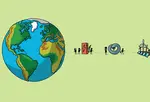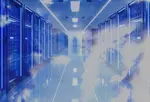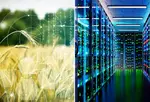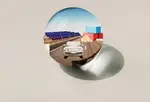Climate Change
Ideas and insights about climate change from MIT Sloan.
Why climate and energy entrepreneurs need their own playbook
Climate ventures are capital-intensive, take years to scale, and face unique hurdles. Standard advice doesn't always apply. MIT experts explain why these businesses need their own framework.
Use these 3 MIT guides when implementing AI in your organization
Three AI implementation guides from MIT provide research-based insights on AI maturity, which AI tool to use, and the human capabilities that will be even more essential in the future.
Flexible data centers can reduce costs — if not emissions
Data centers that shift workload to different times of day save money, but the environmental impact depends on the local grid.
4 actions for business to help curb carbon emissions
MIT Sloan climate expert John Sterman spells out the actions businesses can take to mitigate the economic and ecological harms of global warming.
What is systemic investing?
Systemic investing offers a route to sustainably realizing financial and eco-social value. The key is understanding and embracing the complexity of systems.
3 MIT startups taking on the global waste challenge
These alumni entrepreneurs are applying MIT know-how to keep goods out of landfills, reduce energy costs in recycling, and provide safe sanitation.
What business needs to know about carbon border adjustments
Climate economist Catherine Wolfram explains how the EU’s Carbon Border Adjustment Mechanism aims to level the playing field among trading partners.
The relationship between machine learning and climate change
Machine learning can drive climate action initiatives, but its widespread use could have negative implications, according to Climate Change AI’s Priya Donti.
3 things to know about the next 4 years of US energy
Climate policy expert Christopher Knittel handicaps the likelihood of tariffs, cuts to IRA subsidies, and a carbon tax under the new administration.
14 quotes for business and management from 2024
Here are insights from senior leaders, scientists, and a Nobel laureate that captured the business mood in 2024.










